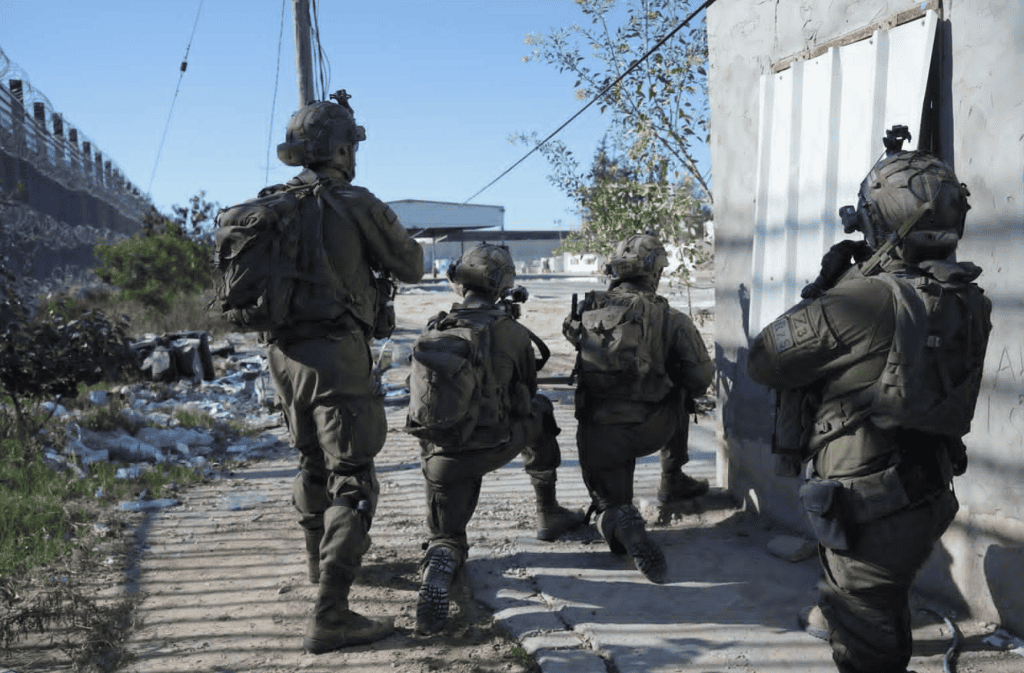
President Biden upped his sharp rhetoric against Israel widening its operation in Rafah on May 8. “I made it clear that if they go into Rafah – they haven’t gone in Rafah yet – if they go into Rafah, I’m not supplying the weapons that have been used historically to deal with Rafah, to deal with the cities – that deal with that problem,” Biden said to CNN. The statement came one week after reports first emerged that the US had paused a shipment of munitions for Israel.
The shipment involved 1,800 of 2,000 lb. bombs and 1,700 of 500 lb. bombs. “We are especially focused on the end-use of the 2,000-lb bombs and the impact they could have in dense urban settings as we have seen in other parts of Gaza. We have not made a final determination on how to proceed with this shipment,” a US official told Al-Monitor on May 8. Subsequent statements by US Secretary of Defense Lloyd Austin and by President Biden to CNN illustrated that the pause in this shipment could be a prelude to a cut-off of more munitions. The administration has said that while it opposes an operation in Rafah, it is particularly concerned about Israel providing a plan for protecting the civilians that live in southern Gaza City.
This crisis built with Israel as the IDF continued operations in eastern Rafah. Israel’s IDF Spokesperson Rear Admiral Daniel Hagari said on May 9 that the IDF has sufficient munitions for the operations it has planned. Israel is currently not only fighting in Gaza, but it has also been carrying out airstrikes against Hezbollah in Lebanon in response to seven months of Hezbollah attacks. The operations in eastern Rafah began on the evening of May 6 and the IDF is concentrating on securing the areas it took over. This includes the Rafah crossing, an old airport in Gaza that hasn’t functioned for decades, and the eastern side of the Salah al-Din road. Around 50 terrorists were eliminated between May 8 and 9, and 10 tunnel shafts were found in Rafah, according to the IDF.
The IDF said several soldiers were moderately injured due to an “explosion of a booby-trapped shaft in eastern Rafah. The soldiers were evacuated to the hospital to receive medical treatment.” IDF troops from the 401st armored brigade and the Givati brigade have been operating in sectors in eastern Rafah. Both units have extensive experience over the last seven months dealing with the unique threats they face in Gaza.
Additionally in the Zaytun neighborhood of northern Gaza, the IDF sent elements of the Nahal infantry, as well as the Carmeli brigade reserve infantry and Yiftah reserve armored brigade to clear terrorists from the area. This area is southeast of Gaza City, and the IDF has cleared it twice before. It abuts the Netzarim corridor that the IDF controls across Gaza, and Hamas has sought to increase attacks on the corridor. “The operation began with a series of intelligence-based aerial strikes on approximately 25 terror targets, including military structures, terror tunnels, observation posts, sniper posts, and additional terror infrastructure,” the IDF said in a statement. Zaytun is reflective of the IDF’s tactic of entering areas, clearing them, and quickly leaving. The IDF did the same thing in this area in November 2023 and again in the third week of February 2024. If the IDF has to re-enter the same area three times in six months of ground operations, this raises questions about whether this tactic is working and how quickly Hamas is able to return to these areas and rebuild its strength.







